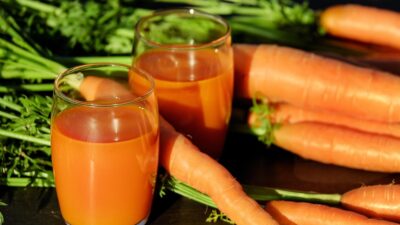In recent years, a significant shift has occurred in consumer preferences, particularly in the realm of food. Organic markets have surged in popularity, capturing the attention of health-conscious consumers and environmentally aware individuals alike. As more people become educated about the impacts of their purchasing choices, the organic food sector has transformed into a booming industry. But what exactly is driving this trend?
Health Consciousness
One of the primary reasons consumers are gravitating towards organic products is health. With rising concerns about pesticides, artificial additives, and genetically modified organisms (GMOs) in conventional foods, many consumers are opting for organic options as a safer alternative. Research suggests that organic farming practices limit exposure to harmful chemicals, which resonates with those seeking to improve their overall health and well-being.
Moreover, numerous studies indicate that organic foods are often higher in vitamins and nutrients compared to their non-organic counterparts. As awareness spreads about the potential dangers of conventional agricultural practices, consumers are increasingly making informed choices that prioritize their health.
Environmental Awareness
The environmental impact of food production is another significant factor driving the growth of organic markets. Traditional farming methods often rely heavily on synthetic fertilizers and pesticides, contributing to soil degradation, loss of biodiversity, and water pollution. In contrast, organic farming emphasizes sustainability and environmental stewardship, employing methods that promote soil health and reduce chemical runoff.
With climate change and environmental degradation becoming pressing global issues, many consumers are eager to support practices that align with their values. Organic farming promotes crop rotation, composting, and other ecological principles that help preserve the earth for future generations. This understanding has propelled the demand for organic products, as consumers seek to make a positive impact through their purchases.
The Influence of Social Media
In the age of social media, information spreads rapidly, influencing consumer behavior in ways that were previously unimaginable. Instagram, TikTok, and other platforms are filled with influencers and advocates who promote organic lifestyles, sharing recipes, health tips, and the benefits of eating organic. This social proof catalyzes a desire among consumers to explore and invest in organic products.
Moreover, the visual appeal of fresh, organic produce is often showcased on these platforms, creating aspirational content that encourages followers to rethink their shopping habits. With the rise of food bloggers and wellness influencers, organic food has gained a significant foothold in the cultural zeitgeist, making it more mainstream.
Local Economies and Community Support
The organic movement is also intertwined with the rise of local economies and community support. Many consumers are drawn to organic markets not just for the products but also for the ethos behind them. By purchasing organic goods from local farmers and markets, consumers feel they’re contributing to their community while also supporting sustainable practices.
Farmers’ markets and community-supported agriculture (CSA) programs have become increasingly popular, as they provide consumers with fresh, seasonal produce while fostering relationships with local producers. This connection enhances the sense of transparency and accountability in the food system, making shoppers feel empowered in their choices.
Challenges and Considerations
Despite the rise of organic markets, there are challenges that still need to be addressed. Price remains a significant barrier for many consumers; organic products tend to be more expensive than conventional options, limiting their accessibility. However, as the demand for organic items continues to grow, there is hope that economies of scale could help lower prices over time.
Additionally, concerns about the authenticity of organic labels have emerged. Instances of greenwashing—where brands claim to be organic without adhering to strict standards—have raised questions about consumer trust. Education on what constitutes a truly organic product is essential to help consumers navigate the marketplace.
Conclusion
The rise of organic markets reflects a larger trend toward health consciousness, environmental awareness, and community support among consumers. As the demand for natural, whole foods continues to grow, it is crucial for farmers, retailers, and policymakers to work together to ensure the integrity and accessibility of organic products. As consumers increasingly choose to prioritize their health and the health of the planet, the shift toward organic markets will likely continue to shape the future of the food industry. In an era where choices matter more than ever, going organic might just be the way forward for a healthier planet and a healthier you.



